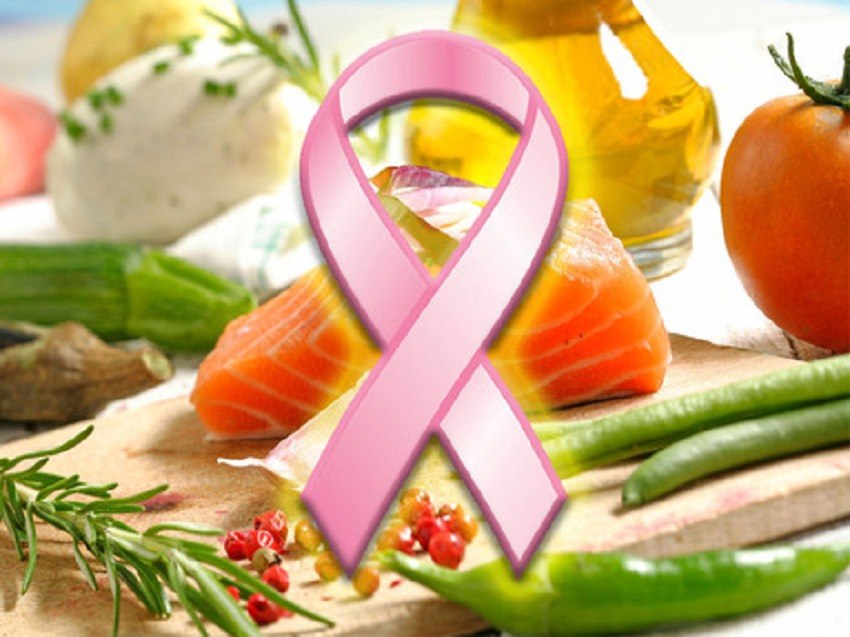Cancer Survivors: Nutrition and Fitness Tips
 Health & Fitness
Health & Fitness
A bout with breast cancer is likely to leave you eager to do all you can to prevent a recurrence. You may be frustrated that there's only so much about cancer prevention you can control.
But you do have control over one area of life: your diet. Eating well can help you take off any weight you may have gained during breast cancer treatment. It may also help protect you in the future from a breast cancer recurrence.
True, what doctors know about your diet's power to ward off a cancer recurrence, as opposed to preventing cancer in the first place, is limited, says Melanie Polk, RD, Director of Nutrition Education at the American Institute for Cancer Research.
"We know that a diet that's high in vegetables, fruits, whole grains and beans, and low in fat and high in fiber is cancer-protective," she says. "But a lot of these factors have not been studied in detail with regard to cancer survivors. Still, there's every reason to believe that dietary factors that are cancer-protective to begin with would be protective as well for cancer survivors."
While much more research is needed, it's a given that a good diet boosts overall health. It also clearly helps protect against heart disease and diabetes. It can't hurt you, and it may help you stay strong for years to come long after your breast cancer treatments are over.
Go for a Diet Rich in Plant Foods, Fish, and Lean Protein
Foods known to have cancer-prevention benefits:
Whole wheat breads. Forget the anti-carb mantra: whole grains (such as wheat and brown rice) have many potent antioxidants, which research has linked to cancer prevention. In fact, one recent study found that antioxidants' cancer-fighting abilities may be equal to the punch packed by fruits and vegetables. So, make sure your bread is 100% whole wheat. Also try whole wheat pasta, and ask for the brown rice at your next Chinese meal.
Carrots, winter squash, pumpkins, apricots. Orange foods (no, not macaroni and cheese) are rich in carotenes, which have been linked to decreased risk of lung and oral cancers and may slow the progression of other cancers.
Spinach, kale, romaine lettuce, Swiss chard, and other dark green vegetables. They also boast plenty of carotenes, along with fiber and folate. Two large studies suggest a relationship between increased folate intake and decreased breast cancer risk.
Garlic, onions, scallions, leeks, and other vegetables from the allium family. Studies in animals show that allium vegetable components can slow the progression of several cancers, including breast cancer.
Beans -- lentils, peas, kidney beans, navy beans, and so on. Beans are rich in fiber, and also in a certain kind of antioxidant that appears to slow tumor growth.
After Breast Cancer: Getting Back into a Fitness Routine
Now, what about exercise? You're probably ready to be more active, and you may even have gained some weight, probably somewhere between five and 30 pounds during breast cancer treatment. Just one example: A study presented to the 11th Annual Research Conference on Diet, Nutrition, and Cancer in 2001 found that about a third of women gain weight after three months of chemotherapy, and more than half gain weight after six months.
The reasons are complicated, according to Marisa Weiss, MD, a leading oncologist and founder of Breastcancer.org.
First, you're probably getting less exercise during breast cancer treatment than you usually do, she says. Second, if you haven't gone through menopause already, chemotherapy is likely to put you in at least temporary "chemopause," slowing down your metabolism. Many of the drug cocktails that oncologists use to help fend off nausea and vomiting during chemotherapy include steroids, which can also "pump you up" in ways you don't want.
For this reason, and a host of others, exercise plays a key role in your recovery from breast cancer. In addition to helping you take off your "chemo weight," studies show exercise helps reduce fatigue, improve energy, and combat depression in women with breast cancer. Exercise also helps lower a woman's risk of developing breast cancer, and may also improve the odds against your cancer's coming back.
Ideally, you were keeping up with some sort of exercise program during your treatment for breast cancer. But even if the fatigue and other side effects kept you from exercising during treatment, you can still get started now and reap the benefits.
Ease Back into Fitness, and be Realistic
Here are some tips from Weiss and Jami Bernard, a New York film critic, breast cancer survivor and author of Breast Cancer: There and Back.
Talk to your doctor. You may have ignored those warnings that always appear in the fitness magazines: "Consult your doctor before starting any exercise program." Don't ignore them this time. Check with your treatment team to see how much exercise they feel you can handle.
Start small and build. Ignore the recommended levels of weekly exercise set for people with no health problems. At the beginning, you may only be able to handle a 15-minute walk four times a week.
Set realistic expectations. If you were running an eight-minute mile before you started chemotherapy, don't expect that you'll be able to match that pace three or four months after your last dose. Comparing your current level of fitness with where you were before starting treatment will only discourage you. Remember, you've just run a tougher race than the Ironman, and your body is naturally drained.
Don't stress your bones and joints. If you've been diagnosed with metastases to the bone, or bone loss related to chemotherapy, avoid activities that involve jumping or twisting at the hips. These could add to your risk of fractures. Instead, try exercise that's easier on your bones and joints. The perfect pastime: swimming, a no-impact way to work your muscles and your cardiovascular system.
Be aware of your ability to balance. If you have neuropathy (tingling or numbness) in your feet or hands after chemotherapy, which can affect your balance, be careful about activities that might increase your risk of falling. Instead of running on a treadmill, for example, you might prefer working out on an exercise bicycle.
Find a partner. It's always easier to get motivated to exercise when you have someone to share it with.
Strengthening Your Body, and Slowly Shedding Extra Pounds
If you've had lymph nodes removed, many experts will warn you not to lift more than 15 pounds with the affected arm. Bernard, who had been working out with weights a lot at the time of her diagnosis and worried about losing her new muscle tone, says she was "scared straight" by such warnings, and found herself almost afraid to do anything with that arm.
"That's why you get frozen shoulder, though. You're supposed to try to work that arm and strengthen it again," she says. "You have to start with smaller weights and go slowly, being very careful of the arm, but strengthening it is not only fine but important."
You may not lose weight as fast as you'd like after breast cancer treatment, but keeping up with a regular exercise program will strengthen your body and help you fight many of those other lingering side effects, like fatigue. "You want to regain your body right away. I know the urge," says Bernard. "That's just not possible. You've been through a lot and your body is still coming back from it. It could take months or years to get back to where you were. But if you keep exercising, it will happen."
Source: webmd.com




